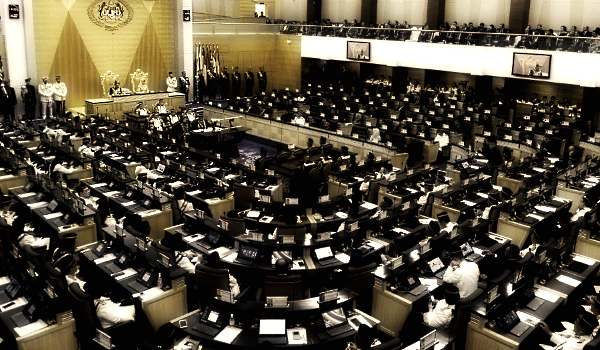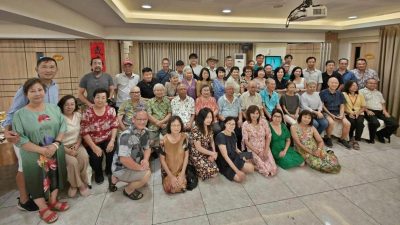Sin Chew Daily
January 12, His Majesty Yang di-Pertuan Agong consented to the proclamation of emergency decree until August 1 with the objective of containing the spread of the coronavirus.
Back then Comptroller of the Royal Household Ahmad Fadil pointed out in a statement that Emergency could be lifted earlier if the pandemic is effectively controlled, and His Majesty also accepted the PN government's proposal to set up an independent committee comprising government and opposition lawmakers as well as health experts. This committee could propose to His Majesty when to end the Emergency depending on how well the pandemic is put under control.
One of the main points of the Emergency then was to suspend the parliament so that the government could focus on fighting the virus.
Nevertheless, more than five months now, the parliament has remained suspended but the COVID-19 situation in the country has not improved the least.
Last week, PM Muhyiddin outlined the criteria for various phases of nationwide lockdown in the national recovery plan. Subsequently, the Palace issued a statement to urge the government to reconvene the parliament as soon as possible.
The PM has planned to reconvene the parliament only around September or October, more than three months from now. If the government's anti-virus measures are effective in containing the spread of the virus, the parliament should be reconvened as soon as possible. As such, Muhyiddin proposed on Sunday to set up a joint committee of government and opposition reps to look into all important matters before the parliament reconvenes. The committee will decide whether parliament should reconvene soon.
It is indeed necessary for a joint committee to "look into all important matters" before the parliament reconvenes.

First and foremost, we hope that such a process can be completed as soon as possible. As for the SOPs and seat arrangement, this should be settled very fast. More importantly, what are the major policies that need to be prioritized when the parliament reconvenes, and what endless controversies need to be excluded.
All that we can remember since the "Sheraton Move" last February through the proclamation of Emergency this January are the ravaging coronavirus outbreak, MCO, government aid packages, school closure and tug-of-war between both sides of the political divide, and audiences with the King.
Nothing impresses us more than the political tussle between government and opposition politicians, which has a lot to do with the proclamation of Emergency. As such, if the parliament is to reconvene, then all lawmakers must pledge to discuss anything but "no-confidence vote and election", and spend the time wisely on how to better contain the virus.
There will only be one most important agenda if the parliament is to reconvene, that is to effectively battle the virus, control its spread, and salvage the ailing national economy.
The national recovery plan that will cover four different phases from a complete lockdown to full reopening of the economy will be determined by three major indicators: daily new infection numbers, burden on the country's healthcare system and the percentage of population receiving two doses of the vaccines.
Firstly, to be honest, as media practitioners we feel that the recovery plan indeed takes way too much time with relatively low criteria because the national economy will have been heavily bruised even if we eventually achieve the goals of the national recovery plan.
In view of this, it is utterly essential for lawmakers on both sides of the divide to seriously discuss and readjust the criteria.
Secondly, the finance ministry, World Bank, MIER and other institutions have had overly optimistic projections for the country's economic growth of between 5.2% and 6.7% this year, reversing the 5.6% contraction recorded last year. However, the pandemic this year is far worse than last year and with a number of lockdown measures being enforced throughout the year, the economic losses may be higher than RM60 billion, and this alone will instantly take 4.3% off our GDP. As a result, a more realistic growth projection for this year should be under 3%.
Government resources are limited and should be used to assist the struggling small businesses, given the fact about 55% of the country's GDP has been contributed by the tertiary sector of the economy (commerce, services and travel-related industry).
Consequently, the mainstay of the reconvened parliament should be vaccination for all Malaysians with the hope of flattening the infection curve as soon as possible and reviving the national economy. All political tussles must be put aside momentarily as our common enemy is the virus, not fellow humans holding different political stands.
ADVERTISEMENT
ADVERTISEMENT


































